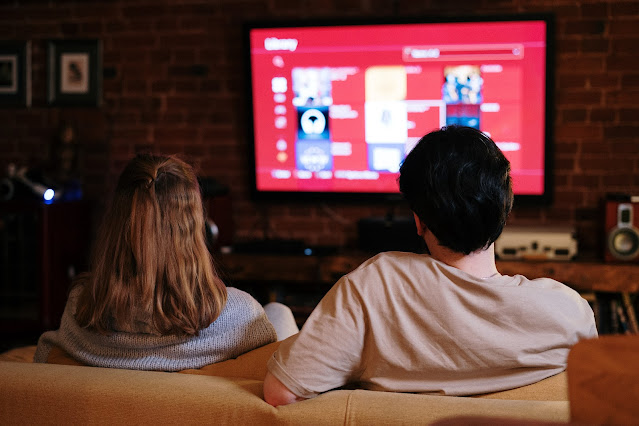495
 |
| Photo by cottonbro from Pexels |
Research conducted at the University of Bristol in the U.K., suggests that watching TV for four hours or more can increase the risk of blood clots. For prolonged viewers, the chances are 35% more as compared to those who watch TV for 2.5 hours or less.
“Our study findings also suggest that being physically active does not eliminate the increased risk of blood clots associated with prolonged TV watching,” said Dr. Setor Kunutsor, lead author of the study. “If you are going to binge on TV you need to take breaks. You can stand and stretch every 30 minutes or use a stationary bike. And avoid combining television with unhealthy snacking,” he added.
The study assessed the connection between watching TV and Venous Thromboembolism (VTE), a condition in which blood clots form in the deep veins of the leg. Complications occur when some part of the clot travels through the blood in the lungs causing pulmonary embolism.
In the current study, researchers collected the available evidence and information about VTE and watching TV. Then they used meta-analysis, a quantitative study process used to examine the results of the previous studies. These results can help to derive conclusions relevant to the ongoing research. “Combining multiple studies in a meta-analysis provides a larger sample and makes the results more precise and reliable than the findings of an individual study” explained Dr. Kunutsor.
A total of 131,421 participants aged 40 years and above having no VTE participated in the analysis. Then, they were categorized into two categories based on the amount of time spent watching TV. The prolonged viewer category included participants who spent four hours and above binge-watching while the seldom/never viewer category included participants who watch TV less than 2.5 hours a day.
The average duration of follow-up in the study ranged from 5.1 to 19.8 years. During this time, 964 participants developed VTE. The researchers assessed the risk of VTE in prolonged versus seldom/never viewers. They found that prolonged viewers are at a huge risk of developing VTE at least 1.35 times more than seldom viewers. The researchers also discovered that factors like age, body mass index (BMI), sex, and physical activity have no link with developing VTE.
“All the studies adjusted for these factors since they are strongly related to the risk of VTE. For instance, older age, higher BMI, and physical inactivity are linked with an increased risk of VTE,” said Dr. Kunutsor. “The findings indicate that regardless of physical activity, your BMI, how old you are, your gender, watching many hours of television is a risky activity with regards to developing blood clots,” he added. Dr. Kunutsor noted that the discovery is based on observations. Scientifically it is not proven that extended hours of binge-watching cause VTE or blood clots.
Regarding the reasons for the observation, he said, “Prolonged TV viewing involves immobilization which is a risk factor for VTE. This is why people are encouraged to move around after surgery or during a long-haul flight. In addition, when you sit in a cramped position for long periods, blood pools in your extremities rather than circulating and this can cause blood clots. Finally, binge-watchers tend to eat unhealthy snacks which may lead to obesity and high blood pressure which both raise the likelihood of blood clots.”
Dr. Kunutsor concluded, “Our results suggest that we should limit the time we spend in front of the television. Long periods of TV watching should be interspersed with movement to keep the circulation ongoing. Generally speaking, if you sit a lot in your daily life- for example, your work involves sitting for hours at a computer- be sure to get up and move around from time to time.”
The study has been published in the European Journal of Preventive Cardiology.


1 comment
[…] has gained both acclaim and criticism for its ability to consume hours of a person’s day. It offers endless entertainment and escapism. But critics argue that it […]